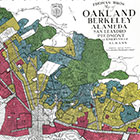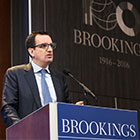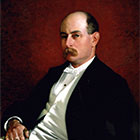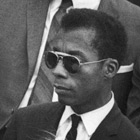
American Apartheid
In The Color of Law, Richard Rothstein unveils how the federal government deliberately promoted housing segregation, deepening racial inequality and violating the Constitutional rights of millions of Americans.


In The Color of Law, Richard Rothstein unveils how the federal government deliberately promoted housing segregation, deepening racial inequality and violating the Constitutional rights of millions of Americans.

Trump’s election has made Lana Del Rey rethink her patriotism, without losing sight of a resilient, youthful Americana—and hope along with it.

They present themselves as a policy vanguard. But think tanks like Brookings have become startlingly backward-looking and incapable of charting a new path for the United States in the twenty-first century.

In The End of Eddy, Édouard Louis uses literature to enliven working-class society in a way that neither sociology nor history can.

How “There Is No Alternative” gave us Donald Trump.

During the Second World War, the United States had a centrally planned economy—and the most rapid economic growth in U.S. history. What lessons can we take from the war economy today?

Stephen Kinzer is one of the few mainstream voices reminding Americans of our imperial identity. In The True Flag, he takes us back to where he thinks it all began—1898, when the U.S. political class pushed off on the quest for global domination.

Chris Hayes’s A Colony in a Nation seeks to elevate the Movement for Black Lives by placing it on a par with the American Revolution, but his analysis carries troubling implications.

How the “Boston Brahmins” of the late nineteenth century laid the foundations for modern American capitalism.

We don’t need to de-politicize Nietzsche to save him from fascist appropriation.

The EU provides a convenient villain for those eager to blame the rise of neoliberalism on unelected bureaucrats acting at the behest of capital. But if historians are correct, this account is a fable that distracts from a grimmer reality.

Samuel Abrams’s Education and the Commercial Mindset provides the most detailed analysis of school privatization to date, yet overlooks the critical role that anti–union animus plays in fueling it.

I Am Not Your Negro shows how James Baldwin became disillusioned about the possibility of any peaceful resolution to racism, but underplays the force of his internationalist and anti-capitalist perspective.

Since Citizens United, corporate America has been pushing its agenda through state legislatures at record pace. To defeat this onslaught, we need to look closely at how it works.

In the early 1990s Pelican Bay Prison was a cesspool of brutality. But in ending its worst years, did a judge civilize the cruel practice of solitary confinement?